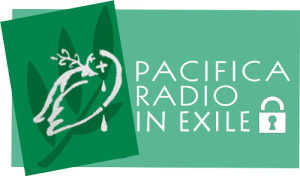Originally posted January 22, 2015
Berkeley-At the January 22nd national board meeting, it was revealed Pacifica has defaulted on a loan from board member Lydia Brazon’s employer, Aris Anagnos. The $156,000 loan was approved by the board in September with the first $25,000 repayment due on October 28th, 2014. The board violated California Corporations Code in September by having interested director Brazon voting favorably on the transaction. Brazon stated repeatedly that she had not voted, which was a lie as this audio clip of the September vote reveals. It’s not clear why an elected representative would lie about a vote recorded on audio. Brazon did not reply when provided the audio recording of her vote. It provides a disproportionate level of influence for a single board member to mediate on behalf of an organization which is in default to her employer.

The board was assured by CFO Salvador the Anagnos loan payments would be made on time, by allocating the funds as the first priority after each WBAI fund drive. Salvador’s statements can be heard here. WBAI recorded $405,000 in income in the October/November period, so the repayment of the Anagnos loan was not only not the first priority, it was not the fifteenth priority. Neither Salvador nor Wilkinson replied to inquiries as to why the default occured and the money was not allocated as they said it would be.
The loan agreement, which was casually drafted with no attorney review, provides an option for Pacifica to pay early, but states nothing about what happens if Pacifica does not pay. The lack of an arbitration clause reserves Anagnos’ right to sue in the event of nonpayment.
A hint as to why the default happened can be found in this brief clip from PNB treasurer Brian Edwards-Tiekert. In it, he observed that the Anagnos loan would “go away” in bankruptcy court. Board member Hank Lamb, an in-and-out member of the rogue board majority has stated publicly several majority board members intend to take the organization into bankruptcy court. The debt to Aris Anagnos is not the only thing that would “go away” in bankruptcy court.
The 2014 majority has been moving rapidly to install a new executive director to replace Margy Wilkinson prior to the state investigation of Pacifica’s accounting and recordkeeping. Wilkinson has held the position since March of 2014, briefly interrupted by the interim appointment of Bernard Duncan, who resigned and left the country 75 days after being appointed. The board convened a 8+ hour phone call on Sunday January 18th to interview some number of finalists, although many board members were unable to attend the weekend meeting. It’s unlikely most stayed on the phone for eight consecutive hours. The board imposed no requirement that board members be present for the interviews before voting, so the voting currently underway may be measuring support for candidates some board members have never met or conversed with at all.
The audit by the California Attorney General is certainly one of the pressing challenges a new executive director will have to deal with. Concerned that prospective executive directors were not being informed, a PDGG-affiliated board member took it upon themselves to individually provide the candidates with the Attorney General’s document request. The note in full can be found here.

“I feel strongly that it is and was the responsibility of the Board of the Directors, and the search committee it assembled, to notify the candidates of this and any other possible investigations and to secure from them direct answers to the candidates’ ability, willingness and any experience they may have of guiding a not for profit organization through a significant state investigation. And that the Board of Directors should ascertain from each candidate their best thoughts on how they would proceed based on the current conditions that exist – with full disclosure”.
The rest of the January 22nd meeting was dedicated to the 4-months-late-but-better-than-
KPFT-Texas: The station’s budget was passed with a proviso stating any extra funds raised beyond fund drive goals would be dedicated to repaying unpaid network services. The proviso is totally irresponsible as the Houston station is on its sixth consecutive temporary stay from the FCC to operate at half power and unable to renew its license until it replaces its failing transmitter. Not directing any surplus funds to replacing the equipment verges on criminal negligence. The station could permanently lose half the license power, an asset loss of millions of dollars, over a $160,000 piece of equipment that can be secured for a $50,000 down payment.
WBAI-New York: The station’s budget was passed with half a dozen provisos. The conversation touched on the station’s need for a broadcast studio after being asked to leave the City College studios they have been using since Hurricane Sandy destroyed the station’s facilities. The studio build-out is unbudgeted, due to the unwillingness of the national finance committee to redo the budget as they should have based on current information. The new studio is being built on the cheap, so cheap that it will not be soundproofed, which is likely to have a negative impact on the station’s sound quality for a while. GM Berthold Reimers, who briefly joined the PNB call, reported that for the third consecutive time, the New York station’s fund drive receipts were negatively impacted by a program director initiative for “programs, not premiums”. Reimers reported the same for earlier “programs, not premiums” efforts by program directors Andrew Phillips in 2012 and Bob Hennelly in 2013.
WBAI’s departure from the Great Plains/Microsoft Dynamics accounting system to a freestanding Quickbooks program has already resulted in sizable discrepancies. The reports issued from the local station showed $95,000 more in revenue for the months of October/November than the reports issued from the CFO – 3 months after the fact. A motion by director Kim Kaufman that contingency plans for WBAI should wait on accurate financial statements was defeated by a national board vote, although its hard to see how a contingency plan could be developed if no one knows how much money is coming in. If the rate of discrepancy continues at this pace, the two accounting systems will be $600,000 apart by the end of the year.
KPFK-Los Angeles: The budget was acknowledged to have two major problems: the first being the use of the wrong fulfillment rate (the station’s historic average is about 80%, but the budget draft upped that to 90%) and the second leaving out call center expenses for the 3 hours of daily programs where pledges are processed via the Berkeley station (Uprising, Letters and Politics and the Evening News). Despite these errors, the budget was approved with a proviso for $250,000 in staff reductions. The reductions are directly linked to the station’s budget mistakes and the inability to responsibly cut costs due to error-filled and incomplete accounting obscuring the station’s financial situation. KPFK has had no financial statements detailing the station’s expenses for the entirety of 2014.
KPFA-Berkeley: Some numbers in the budget were based on the receipt of bequests from members in their wills, which while they do happen, do not represent an assured source of income to pay ongoing bills. The $200,000 dropped into the budget on that line item was not based on notification of any actual bequests so the station fell into a severe crash crunch when no one died and has been asked to make $250,000 in staff reductions.
National Office: The 2013 national office budget allocated $70,000 for the 2013 fiscal year audit. That audit is still uncompleted . The national office has admitted it does not have the money that was allocated to pay for the 2013 audit (having spent it on other things) and will be taking it from incoming network services in 2015. This will use up the money allocated for the fiscal year 2014 audit.
WPFW-Washington – WPFW does not have a PNB-approved budget for this fiscal year. The board postponed voting on it and will leave on January 29th without ever providing a budget for the DC station. Board member Benito Diaz tried to put forward a motion that consultant contracts be terminated at all stations, including WPFW, before staff reductions, but the board adjourned without considering his motion.
At KPFA’s local station board meeting on January 24th, the meeting featured a long written report from GM Quincy McCoy in which he announced a few things:

1) The return of the community fund drive room is canceled. and the station will return to full call center services at a cost of $60,000+ a year, switching from tea party outfit Comnet to Cox Cable-subsidiary Telerep on the East Coast, meaning KPFA’s pledge calls will be routed to a DC call center.
2) The station’s fundraising troubles were per McCoy attributable to Pacifica’s mission i.e. covering ongoing events during fund drives (to the limited extent the station did) causing the station to miss fundraising goals. McCoy refers to the “PNB cuts”, although the reason for them is the inflated projections for bequests in KPFA’s budget and the addition of new operating expenses like call center services and Reuters news wire subscriptions.
3) The station’s new website is delayed due to technical problems.
KPFA’s Community Advisory Board (CAB) is holding an open meeting at Berkeley’s Public Library at 2090 Kittredge Street on February 22, from 1:30 to 3:30pm, to discuss strengthening community ties with the Berkeley radio station. The event is open to all and the CAB describes it as: “This event, sponsored by the KPFA Community Advisory Board is open to the public and is especially for individuals, community groups and social justice activists who want to be involved with KPFA’s free speech radio-media network. We want to explore new possibilities for KPFA live streaming, outreach interviews, Twitter, and other radio-media resources. We want to support the dissemination of people’s stories, perspectives, and thinking to foster effective coverage about local events as well as our responses to national and global actions such as those we witness in Ferguson, New York and Cleveland.Join us in building a KPFA Community and Staff Network, addressing issues of democratization and justice in our lives, in our communities and for the planet”.
A memorial/celebration of the life of long-time KPFA programmer and volunteer Mary Berg, whose A Musical Offering woke many Northern Californians on Sunday mornings will be held at the Fellowship Hall at 1924 Cedar Street in Berkeley on January 31st from 2-5pm. The Facebook event listing is here.
###
Started in 1946 by conscientious objector Lew Hill, Pacifica’s storied history includes impounded program tapes for a 1954 on-air discussion of marijuana, broadcasting the Seymour Hersh revelations of the My Lai massacre, bombings by the Ku Klux Klan, going to jail rather than turning over the Patty Hearst tapes to the FBI, and Supreme Court cases including the 1984 decision that noncommercial broadcasters have the constitutional right to editorialize, and the Seven Dirty Words ruling following George Carlin’s incendiary performances on WBAI. Pacifica Foundation Radio operates noncommercial radio stations in New York, Washington, Houston, Los Angeles, and the San Francisco Bay Area, and syndicates content to over 180 affiliates. It invented listener sponsored radio.


